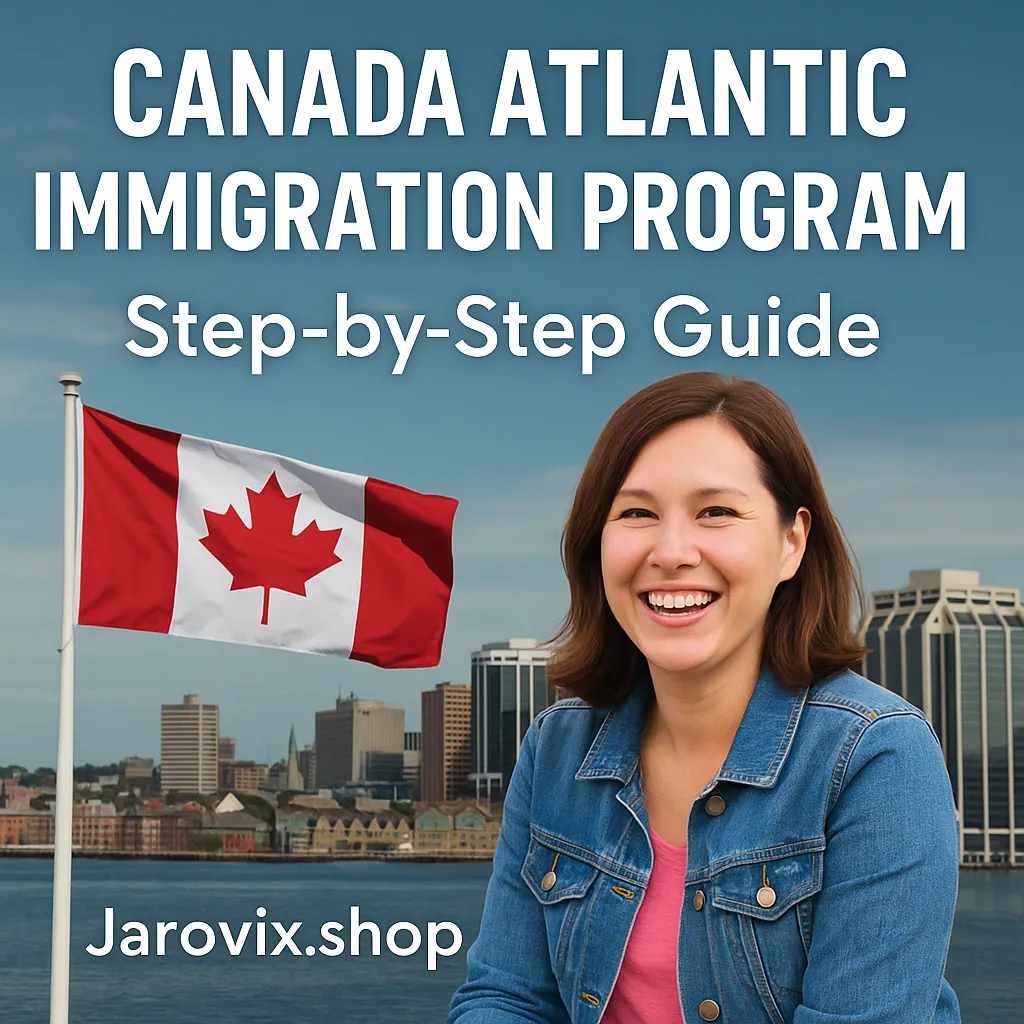
A step-by-step guide to immigrating to Canada’s Atlantic provinces through the AIP. Learn work-experience requirements, job-offer criteria and application steps.
Canada • AIP • Work-to-Residence • Atlantic Provinces
The Atlantic Immigration Program (AIP) helps employers in Nova Scotia, New Brunswick, Prince Edward Island and Newfoundland & Labrador hire foreign workers. Applicants must accumulate at least 1,560 hours of paid work experience in the last five years and secure a job offer at an eligible TEER level. International graduates of Atlantic institutions may be exempt. Here’s how the program works.
Eligibility Requirements
To qualify under the AIP you must:
- Work experience: Accumulate at least 1,560 hours of paid work (30 hours/week for 12 months) within the last five years. The experience must be paid, obtained legally and can be gained outside Canada.
- Education: Hold at least a high school diploma equivalent to a Canadian credential. If educated outside Canada, obtain an Educational Credential Assessment.
- Language proficiency: Meet Canadian Language Benchmarks (CLB) Level 4 (for TEER 4 and 5 jobs) or CLB 5 (for TEER 0–3 jobs).
- Settlement funds: Show proof of funds to support yourself and family members unless you are already living and working in Canada on a valid permit.
- Job offer: Have a job offer from a designated Atlantic employer for a position that meets the TEER level requirements (see below).
International graduates from designated post‑secondary institutions in the Atlantic provinces may apply without meeting the work‑experience requirement if they studied full‑time for at least two years and graduated within the last 24 months.
Job Offer & TEER Levels
A job offer under the AIP must be:
- Full‑time (at least 30 hours per week) and non-seasonal.
- Valid for at least one year (unless the job is at TEER 0 or 1, which may be permanent).
- In one of the following TEER categories: 0, 1, 2, 3 or 4. TEER 0 includes management occupations; TEER 1–3 cover professional and technical roles; TEER 4 includes entry-level jobs requiring secondary education or on-the-job training.
How to Apply
- Find a designated employer: Search the list of designated Atlantic employers and secure a job offer.
- Obtain endorsement: Your employer must work with a settlement service provider to create a settlement plan and receive an endorsement letter from the province.
- Prepare documents: Gather work experience letters, language test results, educational assessments, passports and proof of funds.
- Apply for permanent residence: Submit your PR application online through IRCC. Processing times are around 6 months.
- Apply for a work permit (optional): You may be eligible for a temporary work permit while your PR application is processed.
FAQs
What counts as work experience?
You must have at least 1,560 hours of paid work within the last five years. Self-employed work and unpaid internships do not count.
Do international graduates need work experience?
No. Graduates of recognized Atlantic institutions who completed a program of at least two years may apply without work experience.
How much settlement funds do I need?
The amount depends on family size. For example, a single applicant needs around CAD$3,439, while a family of four needs CAD$6,958 (2025 amounts). Check IRCC for latest figures.
Does the AIP lead to permanent residency?
Yes. AIP is a direct-to-PR pathway. Once approved, you become a permanent resident and can later apply for citizenship.
• Verify details on the official IRCC website before applying.
